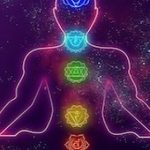by Toketemu Ohwovoriole: What Is Deep Sleep?
There are two main sleep stages: non-rapid eye movement (non-REM) sleep and rapid eye movement sleep (REM).
Deep sleep is the third stage of non-rapid eye movement (non-REM) sleep. Deep sleep is also known as slow-wave sleep. This is the stage of sleep where your brain waves are at their slowest. Your heartbeat and breathing also slow down.
What Happens During Deep Sleep
During deep sleep, your body goes through many essential processes for the optimal functioning of your brain. When you are in deep sleep, you’ll find that you are not easily awakened, and even when you are, you’ll feel disoriented and groggy.
Some research shows that for several minutes or even hours after you’ve been awakened from the deeper stages of sleep, your mental performance will be impaired, and you’ll have a strong desire to go back to sleep. This phenomenon is known as sleep inertia.1
During deep sleep, your declarative memory, which are the memories of facts and events from your day-to-day life, improves. Growth hormones that help with organ, muscle, and tissue repair are also released from your pituitary gland. If you are recovering from an injury, this is when your body does the most work in healing itself.
Sleep disorders such as bedwetting, night terrors, sleepwalking, and sleep eating is likely to occur during deep sleep.
Stages of Sleep
When you fall asleep, your body doesn’t go straight into deep sleep. In fact, throughout the night, you’ll go through several stages of sleep. Non-REM and REM are the two main phases.
Non-REM sleep is the first part of sleep and is made up of three stages. Next is REM sleep. Getting context into how the other stages of sleep occur will help you better understand what deep sleep is and how it happens.
Non-REM sleep
The non-REM phase of your sleep cycle is made up of three stages:
- The first stage happens when you first fall asleep. It typically lasts for only a few minutes, and it’s easy for you to still awaken at this stage. You might experience rolling eye movement or sudden muscle spasms during this stage.
- The second stage occurs just before your body goes into the deep sleep phase. Here your body temperature reduces, and your heart rate and breathing slow. The rolling eye movements you experienced during the first stage will also stop.
- The third stage is deep sleep, your heart rate and breathing rate slow down even more and your brain and body get to work repairing themselves.
REM Sleep
REM sleep occurs when your body starts to cycle from deep sleep. Your heart rate and breathing begin to quicken, and you are most likely to dream during this stage.
The first cycle of REM sleep occurs about 90 minutes after you go to bed. Changes to your brain and body also occur in both REM and non-REM stages. Throughout the night, your body will continue to cycle through these stages until you wake up.
Each time you go through the cycle, you’ll spend less time in the deeper stages of sleep. You are most likely to go through this cycle four to five times a night.
Why You Need Deep Sleep
Getting quality deep sleep is essential for your well-being. During deep sleep, your brain has a chance to recover from all the activity it went through during the day. For young children and teenagers who are still developing, deep sleep is crucial as there’s an increase in growth hormone secretion during this stage of sleep.2
One of the most critical functions of deep sleep is the consolidation of new memories. This is typically referred to as sleep-dependent memory processing. People with insomnia or some other sleep disorder typically suffer an impairment of this function.
As we grow older, the amount of deep sleep we get reduces. This makes it all the more important to get enough quality sleep through the night.3 Some of the most important brain and body functions occur during deep sleep. Not getting enough quality shuteye has been linked to the development of conditions such as:
- Heart disease
- Obesity
- Diabetes
- Hypertension
Tips to Get More Deep Sleep
The easiest way to ensure that your body is getting enough time for deep sleep is to ensure that you are getting enough sleep time in general. The Centers for Disease Control and Prevention (CDC) recommends that adults get more than 7 hours of sleep daily for their optimal well-being.4
In addition to this, here are a couple of tips that can help you get more deep sleep:
- Exercise: Research shows that regular exercise can increase and improve the quality of your deep sleep.
- Spend some time in the sauna: Some research shows that heat can help you get better deep sleep. Taking a hot shower before bed, or hitting the sauna are great ways to get some heat in.5
- Have a healthy diet: There are many reasons to have a healthy diet, and getting quality sleep is one of them. One study shows that eating less fiber and more fats and sugars can cause your sleep to be more disrupted.6 Instead of these, consume more foods that are low in fat and high in protein and fiber.
- Listen to white or pink noise: If you struggle a little with going to sleep at night, listening to some white or pink noise can help with that.
- No coffee before bed: Coffee lovers might drink cups of coffee around the clock when left to their own devices. However, it’s important to avoid caffeine at least 7 hours before you go to bed to have a good night’s sleep.
- Cut down on alcohol: While alcohol might seem like it helps you fall asleep, in reality, it reduces the quality and period of deep sleep that you get.


























































